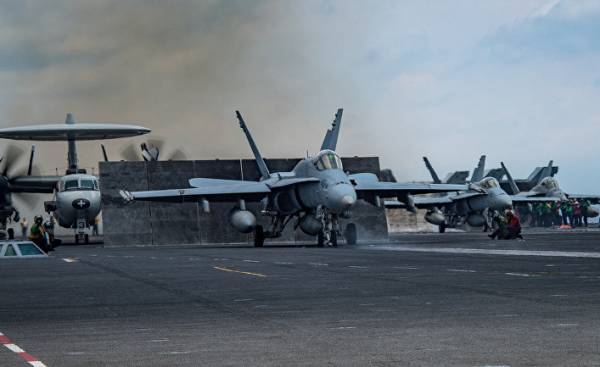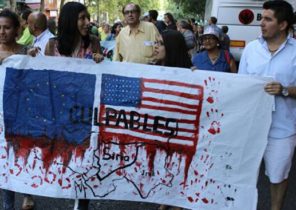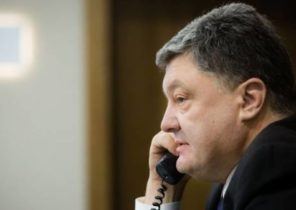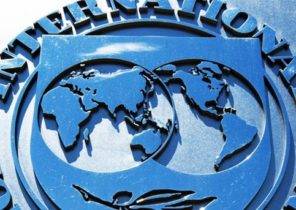
TOKYO — As with any human relationship, international relations — economic or political — are a combination of cooperation and competition. “Cooperation” is beneficial to all participants: it may be the preservation of peace in the world or increase the pace of economic growth and increased prosperity through free trade. “Competition” also creates serious threats from economic barriers and ending war and the destruction of the environment. Why countries do not cooperate more actively?
The answer partly comes down to the so-called prisoner’s dilemma. The country can assume that, having betrayed their partners, they will achieve a better “deal” for himself. Feeling the temptation to cheat, they can start to worry (or even begin to suspect) that the partners who have the same temptation, betray them. As a result, increases the temptation to betray their partners first.
Game theory gives us a mathematical model describing the conflict and cooperation among rationally acting players, but usually it does not offer some desirable strategies to overcome this dilemma, not to mention optimal strategies for addressing real conflicts. However, perhaps Robert Axelrod at the University of Michigan helped to change the situation.
Axelrod held a competition with the participation of prominent scientists, employed game theory, and political analysts to find the most efficient strategy in the repeated game of “prisoner’s Dilemma”. The winner with a strategy, which most likely becomes cooperation, was the strategy “tit-for-tat” (TFT) Anatol Rapoport.
In accordance with the TFT approach, two-way play should start with cooperation: if the other player conducts himself in a spirit of cooperation, then you should behave the same. Only if the other player changes its behavior and refuses to cooperate, you should start to do the same.
Of course, while the other player cooperates, you may be tempted to cheat on him to increase his income and potentially even win big. But, according to the TFT strategy, the other player will start to respond in kind, which will lead to losses, which immediately or over time negate any of your winnings.
At to start with cooperation and punish the player for refusing it, the strategy TFT encourages a positive and mutually beneficial behavior. The question is, can this strategy work in the real world. The US President stepped into the ring of international relations with the intention partly to avoid cooperation, and perhaps now is the time to figure it out.
The international community has been working on the development of free trade. It is in the spirit of cooperation. Any attempt by trump to fulfill his campaign promise to impose trade barriers, prohibitive tariffs and border taxes, thus, would mean the failure of the US cooperation. In this case, is quite understandable, and even correct, if, in accordance with the TFT approach, trading partners of America will respond in kind. Trump focused on the balance in the bilateral trade relations that produces a lack of understanding of the principles of international trade: multilateral approaches work better than bilateral, as they are less likely to put one country dependent on another. But this approach trump the bilateral strategy of TFT becomes easier to implement.
History teaches us how easily a lack of cooperation in international trade could hit the rebound. In 1930 the United States passed the Smoot-Hawley raised import duties by more than 20 thousand products. In three years the us imports plunged 66%, exports by 61%. The rest of the world also suffered: from 1929 to 1934 the volume of world trade declined by two-thirds.
Luckily, trump has retreated from its most aggressive ideas in the field of trade. In the first place, he did not declare China a currency manipulator “the first day” of his administration, as promised before the elections, but completely dropped the charges, asking why he should do that, if China helps US in solving other problems (for example, the North Korean nuclear threat).
There are other good news: trump, apparently, he follows the strategy TFT as is going to punish those who deviate from cooperation, including the two most hostile countries — North Korea and the Islamic state (a terrorist organization banned in Russia — ed.). He allowed the military leadership of the United States to act at its own discretion, which led to the use of the most powerful non-nuclear bombs America dropped on a network of underground tunnels in Afghanistan. As for North Korea, trump has ordered a strike team from the US Navy aircraft carrier to head to the coast of the Korean Peninsula, and announced plans to cooperate with China to punish the regime of Kim Jong-UN.
The intuitive use of game theory trump is, of course, risky, because it is a dangerous game to participants who show zero interest in cooperating. And Asian countries are watching these developments with bated breath. That is why it is so important in implementing the strategy TFT to be accurate and well informed.
And here the administration trump, it seems, is not everything. When trump announced that the U.S. aircraft carrier “Carl Vinson” is sent to the Korean Peninsula, he actually took part in joint exercises with the Navy of Australia in the Indian ocean and was at a distance of 3500 miles from Korea. This error does not help to inspire confidence in South Korea and Japan.
Copying the aggressive behavior of the countries that have deviated from cooperation, will never bring peace. But it can bring the statement of cooperation as the only real option for those who refuses to him. To achieve this, without putting anyone at risk, it is possible, if even more strongly to narrow the gap between imagination trump and reality.







